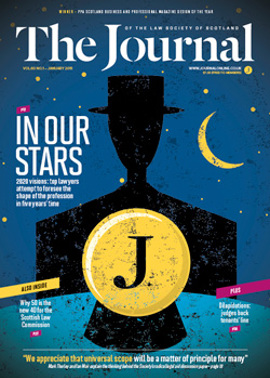Reading for pleasure
We Are All Completely Beside Ourselves
Karen Joy Fowler (Serpeants Tail: £7.99; e-book £3.08)
“Every family has a secret and the secret is that it's not like other families”, Alan Bennett once wrote. Rosemary Cooke’s family secret is bigger than most: her sister Fern disappeared when she was a child, and it’s been a decade since she saw her brother Lowell. Now a student, Rosemary – who narrates – has moved across the country in the hope of seeing Lowell again, and through him finding out what happened to Fern.
We Are All Completely Beside Ourselves thus has a number of elements: a family saga which has some perceptive things to say about the depth of sibling love and rivalry and the unreliability of childhood memories; a campus coming of age; and a mystery to be solved. On top of that, the secret at the heart of Rosemary’s life poses some fundamental and uncomfortable ethical questions. Rosemary’s account begins in medias res – the young Rosemary was told by her father to start in the middle when telling a story – and it’s a measure of author Karen Joy Fowler’s ability that she’s able to keep a potentially complex and distracting structure under tight control, and use it in the furtherance of the novel. Fowler gives Rosemary an appealingly wry, quietly humorous, self-aware tone which suits the material, and her treatment of the subject matter, which is based partly on real-life examples, is compassionate and empathetic, meaning that the startling twist on which the book pivots doesn’t feel gimmicky or exploitative, as it might have in lesser hands.
January Window
Philip Kerr (Head of Zeus: £7.99; e-book £1.19)
Mr Kerr features regularly in these pages, whether for his superb books involving Bernie Gunter in Berlin or his more recent one-off novels, Prayer or Research. This latest offering is another diversion, and one that should bear Mr Kerr fruit. The book is well researched – even a non-football fan can appreciate that. The writing is sharp, fluid and well paced. Scott Manson is the coach of London City, based at the club's stadium, the Crown of Thistles, at Silvertown Docks. The manager, a bit of a hot head but beloved by the fans and skilful at his job, is murdered, and the owner of the club, a Russian oligarch with an associated background and wealth, asks Manson to step up as manager while investigating the murder, seeking to stay one step ahead of the police, for whom Manson has little time. Readers who enjoy the beautiful game will enjoy the book for its setting, with the backroom deals and team tensions, and those who enjoy a fast paced whodunit will find a very rewarding novel.
The Man who Loved Dogs
Leonardo Padura (translated from the Spanish by Anna Kushner) (Bitter Lemon Press: £20)
Leonardo Padura Fuentes, to give him his full title, is another important find by our inspiring friends at Bitter Lemon. Acclaimed as one of Cuba’s finest writers, Señor Fuentes is better known as a crime writer, creator of Mario Conde, a police inspector in Havana.
I suspect that this book, focusing on the exile and assassination of Leon Trotsky, has been a long time in the making. Its detail suggests fine barrel ageing, and its complex strands are skilfully woven. The man of the title is a mysterious foreign stranger whom Iván, the nearest thing the book has to a narrator, meets and befriends on a deserted beach. There are three main threads. The first is of Iván’s own struggle as a disgraced writer in Castro’s Cuba; there is the story of Ramón, a fanatical revolutionary in 1930s Barcelona, dedicated to the cause of the Republic; and there is Trotsky himself. Trotsky has by this time fallen out with Stalin and is effectively a stateless person, moving from country to country while trying to expose how Stalin distorted the revolutionary principles of Lenin, and Trotsky himself. Read on to discover how the man who loved dogs knits all of these threads together.
In his acknowledgment section, Padura writes that he “wanted to use the murder of Trotsky to reflect on how the 20th century’s great utopia was corrupted, that process in which so many invested their hopes and in which so many of us lost dreams, years and even blood and lives”. In that aim he has been an unqualified success. This is a very fine, thoughtful and moving work. There has to be a great deal of Padura himself in Iván, with a lot of bitterness about the lost dreams and lost years coming out. Bleak but powerful.
In this issue
- Advocacy skills in domestic abuse and rape cases
- Life on the edge
- Signs of equality
- What price on safety failures?
- Off on a frolic? Reining in adjudicators
- Reading for pleasure
- Opinion: Christine O'Neill
- Book reviews
- Profile
- President's column
- Embracing the change
- People on the move
- Thumbs up for LBTT forms
- In five years' time...
- DAS ist gut (for business)?
- Legal aid: time for a rethink
- Holiday pay: turning up the heat
- Law reform: a new era?
- Hearings and the foster parent
- Experts: where to draw the line
- The appliance of science?
- Planning/environment briefing: 2014 – a retrospective
- Slice of luck for house buyers
- Scottish Solicitors Discipline Tribunal
- No bar to working together
- Dilapidations: reinstating the law
- AWI guardianship court for Edinburgh
- Law reform roundup
- Lawyers as leaders
- How did that claim arise?
- Ask Ash
- Head and shoulders above
- New year, new rules






